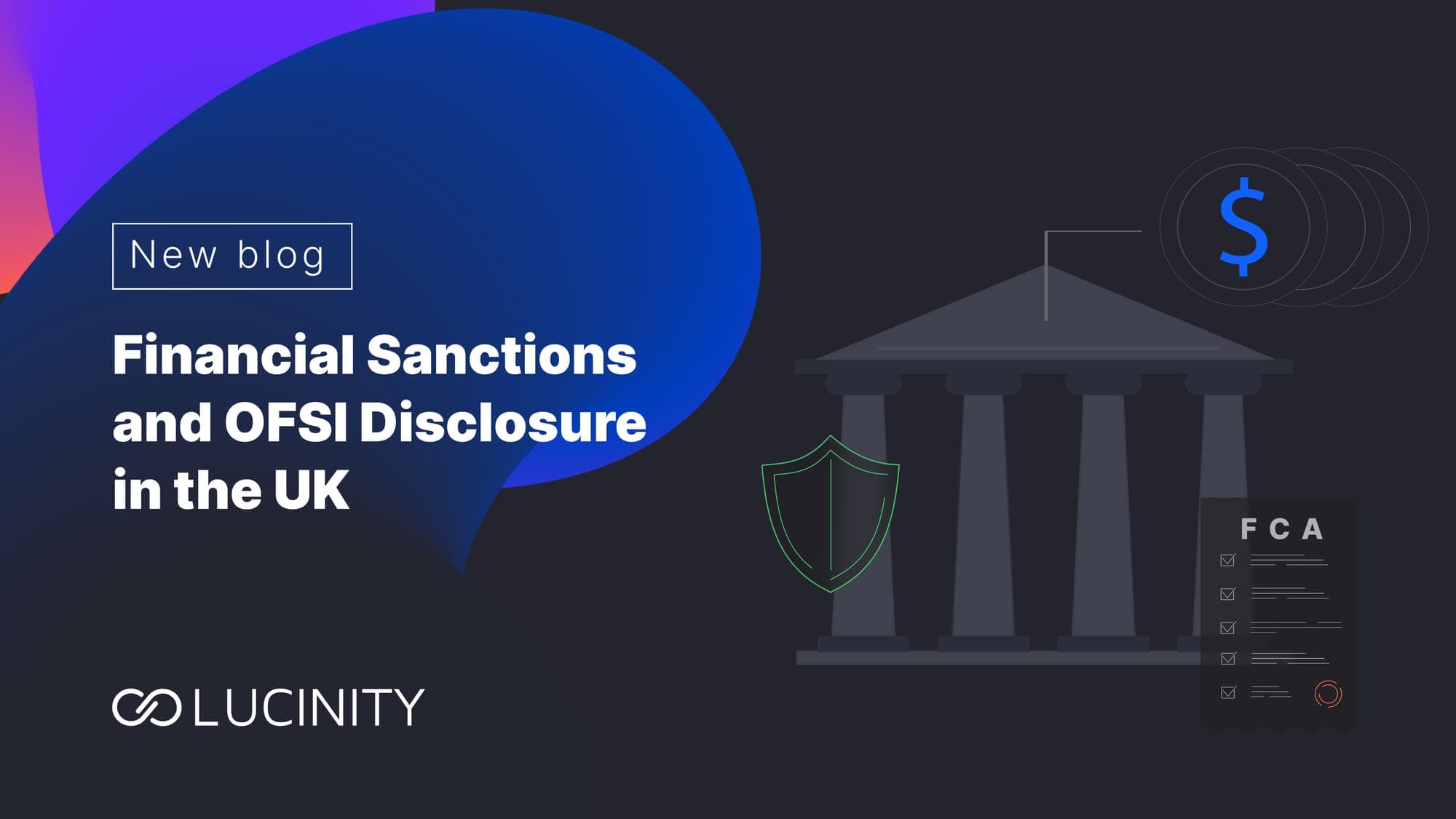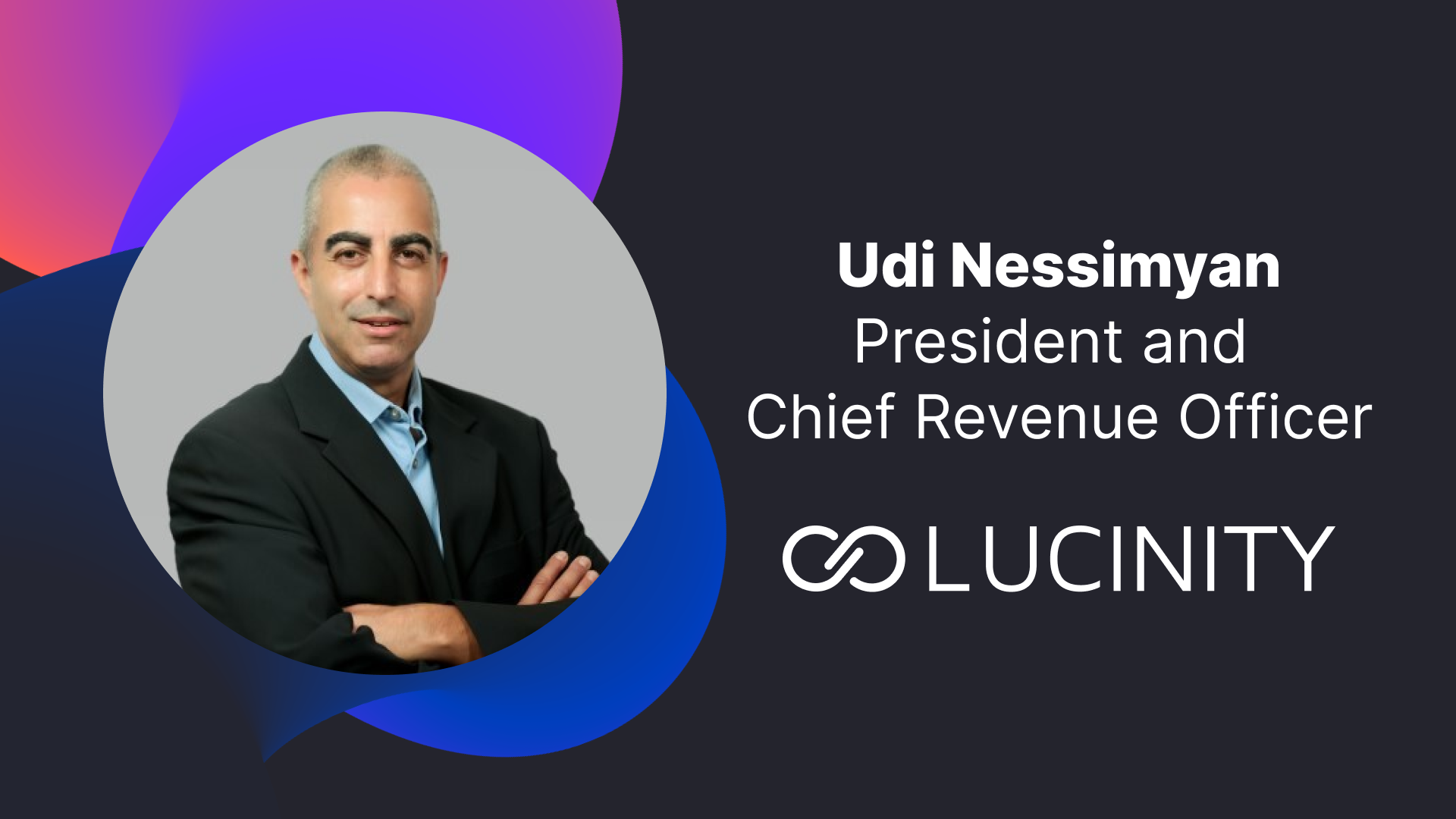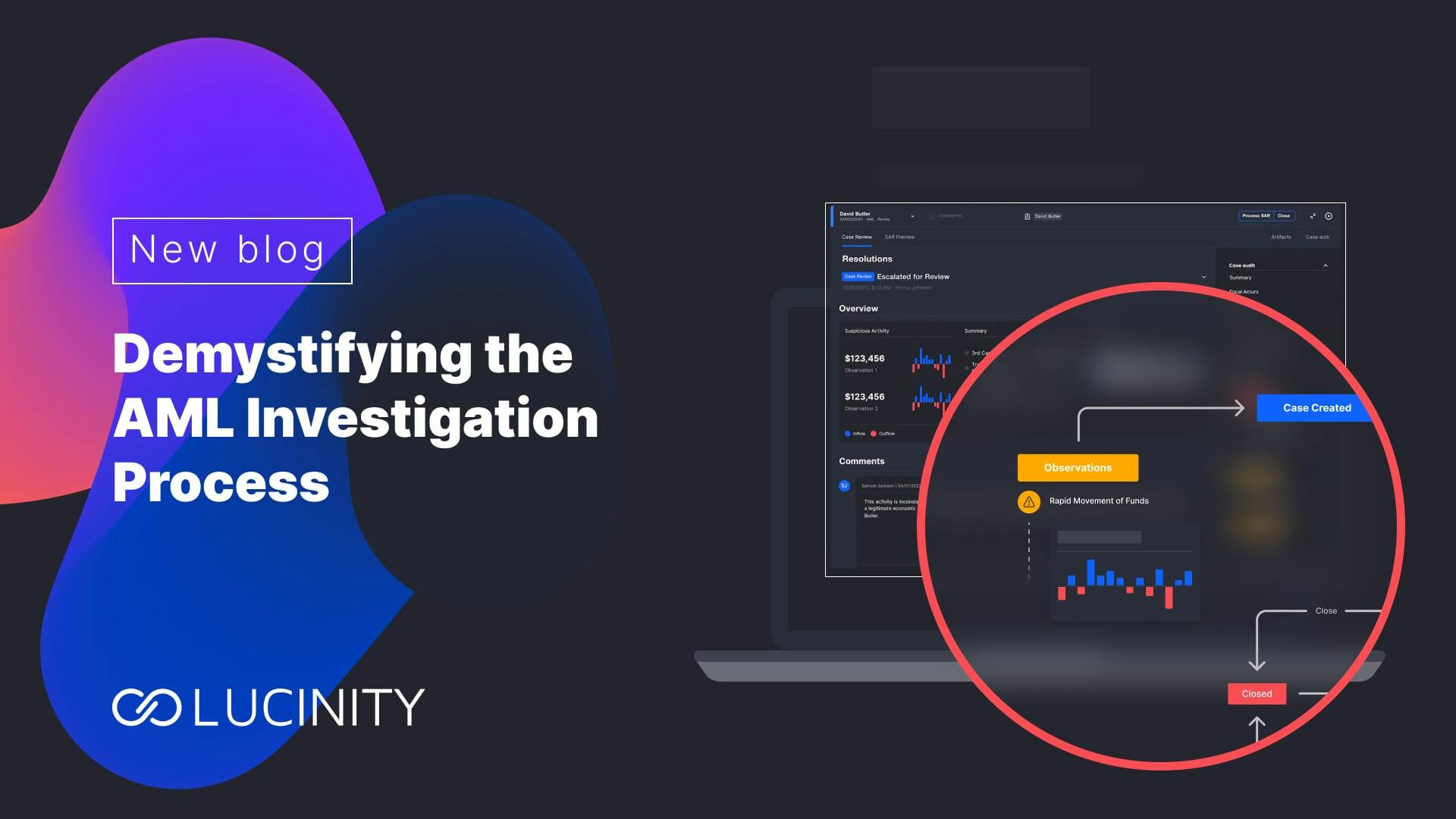AML compliance tools should empower those who fight financial crime
How can we significantly increase the productivity in AML compliance, and use intelligent compliance systems to create a competitive advantage?
How can we significantly increase the productivity in AML compliance, beat criminals who are gaming the international financial system at their own game, and use intelligent compliance systems to create a competitive advantage for innovative fintechs and banks?
An event designed to Make Money Good
These important topics were discussed in sessions in which Lucinity's founder & CEO, GK, and Theresa Berchich, Director of Product Strategy, participated at the FinCrime event, which took place on 27th – 28th of October. It was an exciting event for AML compliance professionals, packed with highly informative discussions, interviews, and keynote sessions. Speakers included people from organizations such as Standard Chartered, Financial Conduct Authority, SWIFT, TATA Consultancy Services, ING Bank, HK Fintech Association, RUSI, Bank of Singapore, and many more.
Productivity in AML Compliance to Make Money Good
Robert Batemen, an Analyst and the Research Director of GRC World Forums, interviewed GK. GK discussed the state of AML compliance, the necessity of using AI to beat financial criminals in their own game, and the vision he has for a world where banks and fintech collaborate on fighting money laundering and other financial crimes. Here below are the key takeaways from their conversation.

The state of Anti Money Laundering Compliance
Banks spend 40B USD on AML annually while catching less than 1% of the proceeds from money-laundering, which amounts to over 2.5 trillion USD every year. Legacy AML systems are inefficient, outdated, and lead to heavily manual processes. Criminals invest heavily in evolving their methods and technology to stay ahead of banks and law enforcement.
Lucinity provides AI-driven productivity tools to AML professionals
Lucinity brings highly effective productivity tools to the heroes that fight financial crime.
Lucinity's AI technology learns from the behavior of bank's customers to spot the transactions which need to be investigated by an AML analyst. The system then provides analysts with an easily understandable analysis of suspicious transactions. Finally, the complexity and inefficiency of creating and submitting SARs (suspicious activity reports) are eliminated in Lucinity's solution by enabling straight-through regulatory filings.
Future trends and challenges for AML compliance
The use of cryptocurrency and the digitization of money, which accelerated during the pandemic, brings new challenges for compliance officers.
Lucinity hopes to facilitate interconnectivity between financial organizations so they can fight financial crime together. In this way, a network of fintechs and banks will counter financial crime and make such activity much more expensive and complicated.
Lucinity will enable hyper-automation of mundane tasks associated with processing AML cases. As a result, AML analysts will be free to work on a high-level analysis of clearly prioritized cases.

RegTech has a fundamental impact on AML compliance
Lucinity's Director of Product Strategy, Theresa Berchich, joined Sujata Dasgupta from Tata Consultancy Services and the host Catherine Chapman Cybersecurity Journalist and founding board member at Infosec Hoppers. The theme of the panel was how regulation technology, RegTech, has impacted anti-financial crime development.

The RegTech landscape is evolving
Sujata pointed out that regulation has become more stringent as financial crimes have become more complex, sophisticated, and global. However, many banks are still using inefficient legacy anti-money-laundering systems. According to Sujata, new AML technology has great potential for detecting, preventing, investigating, and reporting financial crime. Indeed, she pointed out that regulators worldwide are encouraging banks and fintechs to use modern, intelligent tools for AML compliance.
New entrants in the financial market are shaking up RegTech
Theresa added that we see a new financial landscape with neo banks, challenger banks, and fintech companies entering the market. These tech-savvy customers are driving the demand for innovative compliance technology. Banks and fintechs must employ sophisticated technology to fight financial crime on all fronts.
What should RegTechs deliver to banks and fintechs?
RegTechs should deliver highly accurate case detection, automated case processing, and behavioral intelligence embedded in anti-money-laundering tools. AML professionals should see contextualized and easy-to-understand information that empowers them to make decisions with a high degree of confidence. As Sujata points out, customer onboarding time can be reduced from taking a few days to a few minutes. Case investigations that took hours can now take minutes. Over time, costs of compliance are decreased significantly. Theresa even pointed out that compliance tools can help fintechs and banks to identify good customers that should be rewarded and retained.
How to implement RegTech solutions
Theresa recommends that banks and fintechs look to vendors that have a modular approach and create quick wins until the organization is at the compliance stage where it needs and wants to be. In this way, both the initial investment and the time required to see tangible results are greatly reduced.


